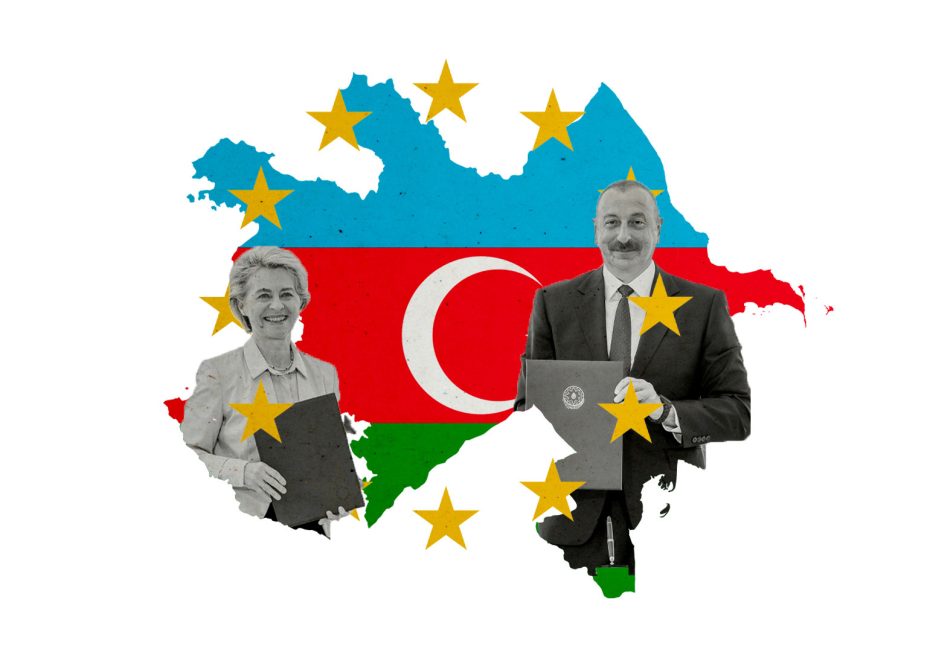The European Union has been eager to reduce its reliance on Russian gas in the wake of Moscow’s unjustified invasion of Ukraine. Since June, Russian energy exports to the EU have seen a 60 per cent decrease. The shutdown of Nord Stream 1, which is a critical supply link for Russian gas to Europe, has added concerns that the Kremlin could potentially cut its gas exports to the Union. According to an official statement of the European Commission, ‘amid Russia’s continued weaponization of its energy supplies, diversification of energy imports is a top priority for the European Union.’
As the European Union has been looking for alternatives to diversify its energy supplies, it concluded a new energy agreement with Azerbaijan on July 18. The deal envisions Baku double its gas exports to Europe in five years, part of Brussels’ effort to reduce reliance on Russia. After the signing of the deal in Baku, Azerbaijani President Ilham Aliyev and European Commission President Ursula von der Leyen both stated their interest in strengthening collaboration in energy and other areas between Baku and Brussels. According to the agreement, Azerbaijan will increase its gas export by an extra 4 billion cubic metres of gas to the EU by the end of 2022, selling the total to 12 billion cubic metres. The agreement also envisions gas transfers to reach at least 20 billion cubic metres by 2027. While the ‘‘emergency’’ Azerbaijani gas for Europe has garnered worldwide attention, it is not clear whether and how more gas could be exported to Europe.
Challenges to Great Potential
Azerbaijan has been working for roughly two decades to become a significant gas exporter to Europe, culminating in late 2020 with the commissioning of the Trans Adriatic gas pipeline (TAP) carrying Azerbaijani gas through Greece and Albania and across the Adriatic Sea to Italy. The recent agreement with the EU seems optimistic, but it is dubious whether Azerbaijan is really capable of producing and providing such an amount of energy. The country has limited scope for increased production and has its own growing demand to meet. In November 2021, Baku even made an agreement with Iran to import 1.5 to two billion cubic meters of gas transported annually. According to British Petroleum, which operates Shah Deniz, the largest gas field in Azerbaijan, the country cannot meet gas demand in Europe unless new investments are not made.
Azerbaijan’s own gas production has seen shortages to meet the surging domestic demand. Strikingly, the country’s increasing export commitments have relied on periodic imports to keep things balanced. Amid growing gas demands in February, Azerbaijan agreed to deliver an extra 4 million cubic meters of gas per day to Turkey during February – only after the conclusion of a three-way swap agreement with Turkmenistan and Iran, under which Iran imports around 2 billion cubic meters of gas from Turkmenistan annually, and exports the same volume to Azerbaijan.
In the meantime, Azerbaijani energy export to Europe is carried out via a single pipeline: Trans-Adriatic Pipeline (TAP). Through this pipeline, merely 10 billion cubic meters can be transported in a year. To date, its exploited capacity reaches around 8 billion cubic meters and therefore has little room available. Considering Azerbaijan’s overall gas production, the pipeline infrastructure currently in place has insufficient capacity to become an alternative for Russian gas exports to Europe, which currently equals around 150 billion cubic metres.
Future Prospects
Azerbaijan’s inability to quickly fill a European energy shortfall pertains to a lack of production due to underdeveloped fields and insufficient capacity of the pipeline. Azerbaijan has several gas fields in the Caspian Sea, the majority of which are either under development or awaiting the necessary investment. At the same time, neighbouring Turkmenistan boasts, according to some estimates, of the fourth-largest gas reserve in the world at 20 trillion cubic meters. In January 2021, Turkmenistan and Azerbaijan concluded an agreement to develop the once-disputed Dostlug field in the Caspian jointly. Nevertheless, more investments are necessary to better exploit the energy potential of the two countries. More gas production coupled with higher demand from Europe would provide a stronger investment case for the expansion of the current TAP pipeline. According to Azerbaijani state oil company SOCAR, the TAP consortium is currently carrying out market studies to make the decision to invest in expanding the pipeline capacity this year. Nonetheless, it is worthwhile to note that it is too early to say that Azerbaijan will be able to boost its gas exports to Europe this year. It might take several years until extra Azerbaijani gas becomes available to European markets.

















